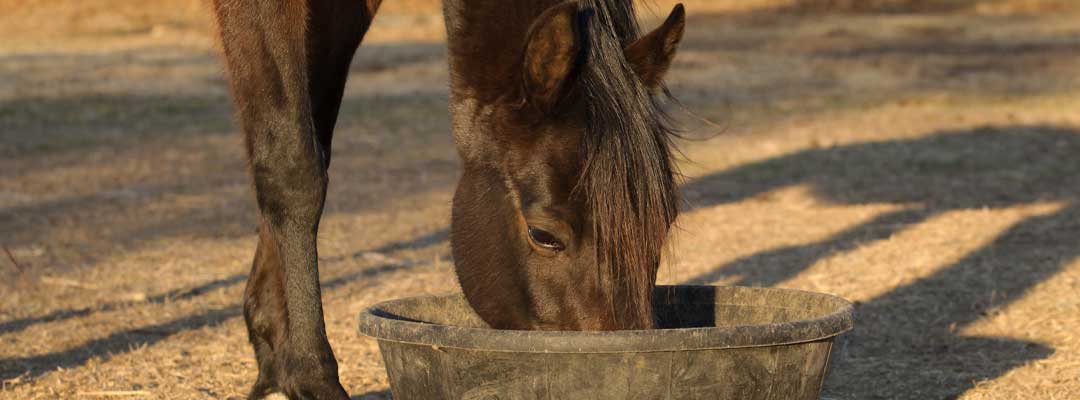FAQ: Is Your Horse Choking?
Understand symptoms of choke in horses, and beware signs of choke in a horse

When one sees their horse choking, it’s a cause for alarm and expedient action.
What does a horse choking look like?
In one instance, a 7-year-old Thoroughbred took just a few bites of alfalfa pellets, immediately retching to take a breath. The gelding coughed as gobs of fluid and feed distributed from his nostrils. At first, he was alarmed, then soon lethargy took over and he displayed pneumonia-like symptoms.
What are symptoms of choke in horses?
Symptoms can include feed material coming from the nostrils, hypersalivating, retching, coughing, and other signs similar to colic in horses, according to the American Association of Equine Practitioners (AAEP). This can be a dangerous condition -- one to take seriously.
What causes choke in horses?
Most commonly, choke in horses is caused by eating concentrated feed too quickly. When the feed is not chewed up appropriately, it is not softened with saliva, according to AAEP, which details how “This forms a firm bolus that gets lodged in the esophagus.”
Forage like hay or alfalfa cubes are the most frequent cause of choke in horses. Choke in older horses, or horses with poor dental health, can be common. But any horse, no matter their age, is at risk. Tony Hawkins, DVM, Valley Vet Supply Technical Service Veterinarian recommends horse owners, “Soak the grain and forage-based pellets and cubes to help horses better chew it up and help them pass it down.”
What immediate steps should be taken for a horse choking?
What does treatment for choke in horses entail?
Treatment for esophageal choke in horses often requires that a veterinarian sedate the horse before passing a nasogastric tube to clear the obstruction, while simultaneously flushing with water to remove the lodged material. AAEP notes that a second approach may be used by veterinarians. Based on the theory that most chokes eventually self-cure, horses may receive several rounds of sedation, as the medications help to relax the esophageal muscles, coupled with fluids to keep the horse hydrated. Should treatment be too much delayed, horses risk dehydration, or death.
Beware the after effects of choke in horses.
AAEP describes how the after effects of choke in horses can be equally as dangerous as the choke itself, stating “Most importantly, chokes predispose horses to aspiration pneumonia, which is caused by feed material going down the trachea and into the lungs. This foreign material in the lungs can cause the horse to develop a secondary bacterial infection.” It’s not uncommon for veterinarians to prescribe antibiotics for your horse to help mitigate the risk.
After a choke episode, be sure to monitor your horse’s temperature for several days, recommends Dr. Hawkins. A fever is one of the first signs of pneumonia. Other symptoms include nasal discharge, coughing, and labored breathing and increased respiratory rate. Normal respiration rate in a horse is 10 to 14 breaths per minute.
Take steps to keep your horses safe. Continue learning about horse health at ValleyVet.com.


